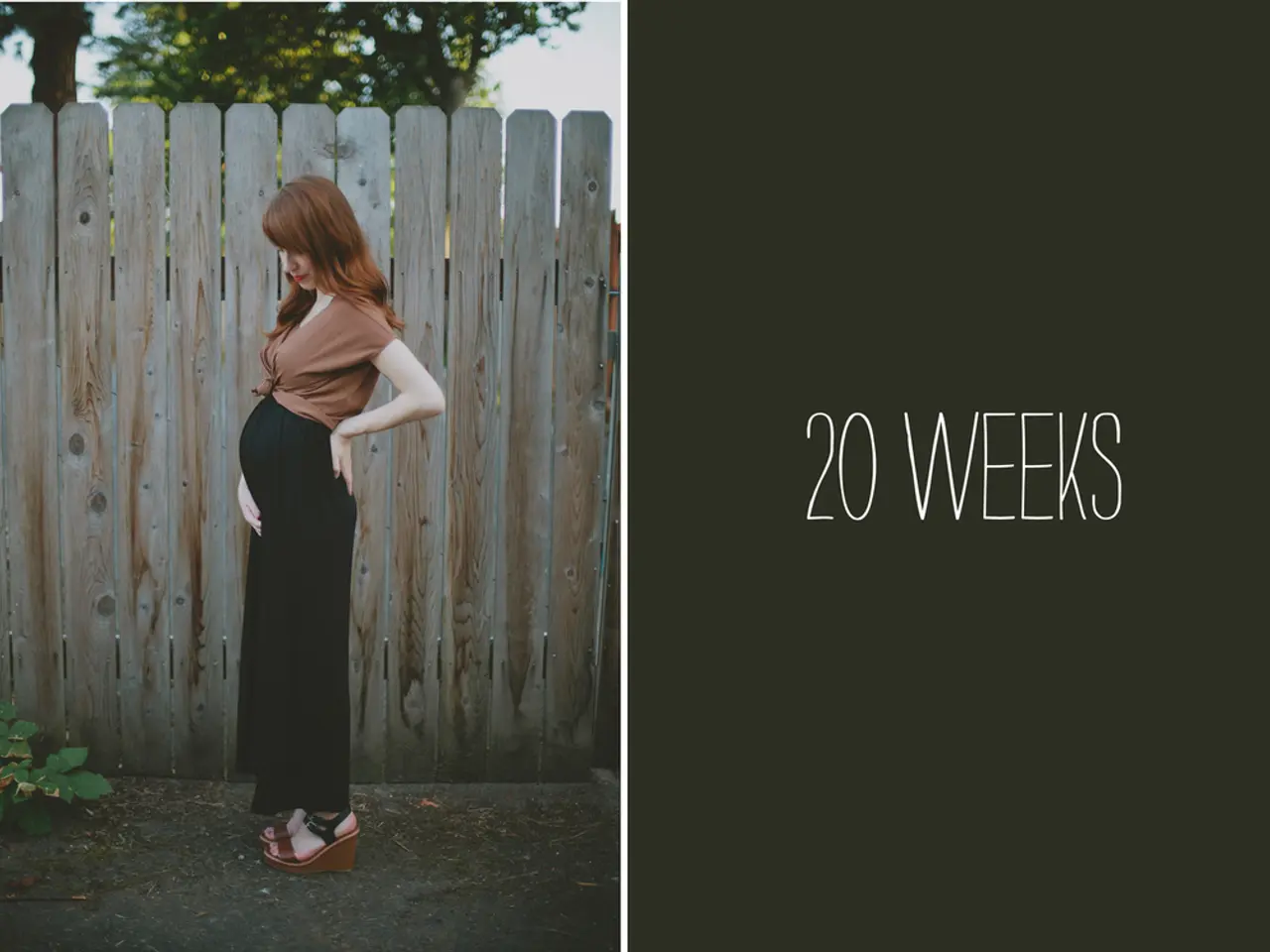Pregnancy and Shingles Risk: What You Need to Know
Shingles, a condition caused by the varicella-zoster virus (VZV), is known for its distinctive rashes and painful symptoms. While it may not pose a direct threat to the fetus, pregnant women should be aware of the risks associated with this virus, particularly as it is related to chickenpox, which can be harmful during pregnancy.
Recognising Shingles
Shingles can be diagnosed through the distinctive appearance of rashes, or by advanced testing to detect the VZV if rashes are not present. The early stage symptoms of shingles include fever, headache, weakness, burning pain or numbness with a tingling sensation on one side of the torso or face. In the second stage, reddened, blotchy, inflamed patches appear on the skin, along nerve pathways. These patches then develop into rashes with pus-filled blisters, which dry out and scab over within 10-14 days [1][3][5].
Effects on Pregnancy and Risks
Shingles itself is not known to raise the risk of miscarriage or cause congenital abnormalities [1][5]. However, chickenpox infection caused by the same virus during pregnancy can increase risks of congenital varicella syndrome, miscarriage, preterm birth, and neonatal varicella [1][3][5]. If a pregnant woman is exposed to someone with active shingles or chickenpox and has no prior immunity to VZV, she is at risk of chickenpox infection, which is risky during pregnancy [3].
Preventive Measures during Pregnancy
To avoid exposure to chickenpox during pregnancy, pregnant women should take preventive measures. This includes avoiding contact with individuals with active shingles or chickenpox to prevent primary infection [3]. If exposure occurs, timely medical consultation is essential as antiviral prophylaxis or varicella-zoster immune globulin may be recommended to prevent or lessen infection severity [3][1].
Shingles vaccines (recombinant zoster vaccines) are not recommended during pregnancy, but receiving vaccination before pregnancy is advised for women over 50 or at risk [4]. Early diagnosis and treatment of shingles during pregnancy using pregnancy-safe antiviral drugs (such as acyclovir) can alleviate symptoms and potentially reduce complications [1][5].
Treatment during Pregnancy
In the event of a shingles outbreak during pregnancy, it's crucial to seek medical advice promptly. Pregnant women should consult a gynaecologist or healthcare professional for guidance on treatment options. Pregnancy-safe antiviral drugs, such as acyclovir, can be used to manage symptoms and potentially reduce complications [1][5].
Preventive Measures beyond Pregnancy
For those who have had chickenpox in the past, there is a likelihood of developing shingles. To prevent this, stress reduction, adequate nutrition, and immune health maintenance may help lower the risk of shingles. Shingles vaccines are also available for eligible individuals, but not during pregnancy [4].
Summary
| Aspect | Details | |----------------------------|----------------------------------------------------------------| | Effect of shingles on fetus | No direct fetal harm or increased miscarriage risk known | | Risk from chickenpox in pregnancy | Increased risk of congenital varicella syndrome, miscarriage, preterm birth if contracted before 20 weeks | | Prevention in pregnancy | Avoid exposure if not immune, seek medical advice promptly if exposed | | Treatment during pregnancy | Use pregnancy-safe antiviral medication under medical supervision| | Vaccination | Shingles vaccine not given during pregnancy; recommended before pregnancy in eligible women |
In conclusion, while shingles itself is usually not dangerous in pregnancy, preventing primary varicella infection and managing any shingles outbreaks promptly under medical guidance are critical to protecting pregnancy outcomes [1][3][5]. Vaccination can help prevent shingles, but it needs to be administered at least 3 months before conception to avoid possible ill effects on the pregnancy. Shingles has minimal effect on pregnancy, as expectant mothers who have had chickenpox already possess immunity against the virus.
Self-care tips for shingles during pregnancy include using cold compresses, calamine solution or oatmeal baths, loose gauze bandages, daily bandage changes, wearing loose clothing, and avoiding tight bandaging. Remember, shingles itself is not contagious, but the virus that causes shingles is contagious, and can spread if one touches the oozing pus from the blisters of an infected person.
- Pregnant women should be aware that while shingles itself does not pose a direct threat to the fetus, the underlying varicella-zoster virus is associated with chickenpox, which can pose risks during pregnancy, such as increased chances of congenital varicella syndrome, miscarriage, preterm birth, and neonatal varicella.
- To prevent primary varicella infection in pregnancy, expectant mothers should avoid contact with individuals with active shingles or chickenpox and if exposure occurs, timely medical consultation is essential to prevent or lessen infection severity.
- In the case of a shingles outbreak during pregnancy, seeking prompt medical advice and using pregnancy-safe antiviral drugs like acyclovir under a healthcare professional’s guidance can help manage symptoms and potentially reduce complications.




